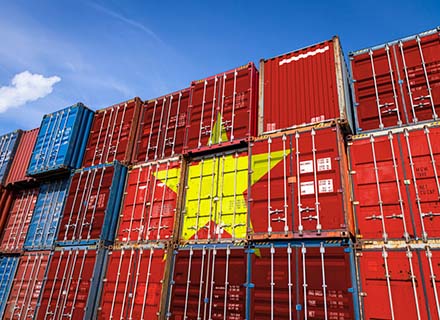Recently, a vital discourse on expanding trade finance opportunities for Vietnamese enterprises took place in Hanoi. The aim was to bolster support for manufacturers and importers, facilitating increased international trade with more proactive involvement from financial institutions.
This significant event drew participation from key stakeholders, including representatives from the International Finance Corporation (IFC), the World Trade Organisation (WTO), Vietnamese policymakers, and commercial banks.
Insights shared by IFC and WTO representatives emphasised the potential impact of enhancing access to trade finance at reasonable costs. They highlighted projections suggesting that such improvements could potentially amplify Vietnam’s import and export turnover by 6 to 9 per cent. This translates to an annual increment of approximately USD 55 billion in the total trade value of goods.
Vietnam’s trade finance landscape remains relatively underutilised, characterised by fragmentation, high costs, and rudimentary services. In 2022, domestic banks contributed a mere 21 percent to the country’s substantial import-export turnover of USD 731 billion. Notably, banks primarily focus on supporting domestic enterprises engaged in regional trade rather than catering to the needs of large multinational corporations involved in global trade.
Thomas Jacobs, the IFC Country Manager for Vietnam, Cambodia, and Laos, highlighted the significance of broadening the scope of trade finance. He emphasised that extending coverage in this domain would not only enhance the competitiveness of Vietnamese importers but also stimulate production and fortify integration into the global supply chain.
Importers and exporters lament a lack of support from banks, citing burdensome collateral requirements and intricate appraisal procedures. On the flip side, Vietnamese banks turned down approximately 12 per cent of trade finance requests in 2022, primarily from small and medium-sized enterprises, resulting in approximately USD 20.3 billion in unmet demand. The primary reasons for these rejections are insufficient collateral and elevated credit risk.
Experts at a workshop stressed the imperative of enhancing the accessibility of trade finance to a broader spectrum of businesses. They stressed the necessity of refining legal frameworks to address collateral requirements, bolster digital transaction capabilities, align with central bank regulations, and establish an accountability framework. Furthermore, there’s a critical need to raise awareness among small and medium-sized enterprises and domestic suppliers regarding the pathways to accessing trade finance.

